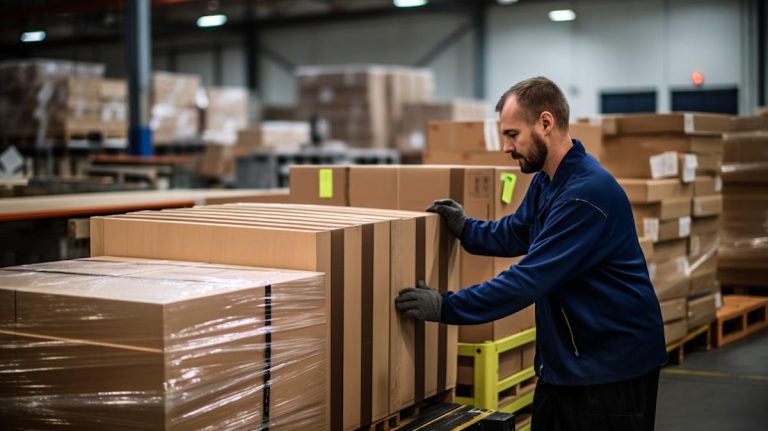Concerts are thrilling—loud music, pulsing lights, and a sea of people all vibing together. But sometimes the excitement turns dangerous. You trip, get pushed, or something falls, and suddenly you’re not singing; you’re injured. That’s a blow nobody wants. Here’s a clear, unfluffy guide to help you figure out what to do—step by step—if something goes wrong at a concert or festival. You’ll learn how to protect yourself legally and make sure you don’t end up carrying all the costs.
Why Concert Injuries Happen
Let’s be real—festivals and concerts are chaotic. When thousands of people gather, mishaps are bound to happen. Here are a few common culprits:
- Crowd crushes: When people shove forward and you can’t breathe or even move.
- Stage collapses or falling gear: Lighting rigs or speakers that aren’t secured properly.
- Slip and fall: Wet floors, spilled drinks, or uneven surfaces.
- Security disputes: Overzealous staff pushing you or even tackling you.
- Heat exhaustion or dehydration injuries: Especially at outdoor events under the sun.
Sometimes it’s pure bad luck—but sometimes it’s negligence. That’s when you might be able to get compensation. But first, you need to know what steps to take.
1. Get to Safety and Seek Medical Attention
Immediate safety comes first. If you’re hurt, move away from the crowd and find help. Event staff, security, or friends are your first line of defense.
If you’re seriously injured — think broken bones, head wounds, or trouble breathing — get professional care right away. Don’t skip this step. Getting quick treatment not only keeps you safe but also creates a medical record of your injuries. In short, it’s your backup plan for later.
2. Document Everything—Right Away
Once you’re safe and medically checked, gather evidence. You’ll thank yourself later.
- Photos and videos: Capture your injury, the scene, broken equipment, wet floors—everything related to the incident.
- Witness info: Ask nearby fans, friends, or crew for names and contact details. Their accounts can help later.
- Incident report: Go find event patrol or security. Ask them to write down the accident and give you a copy.
- Medical report: Make sure your injuries are properly documented by professionals—it matters.
3. Know Who Might Be at Fault
In personal injury law, to get compensation, you need to prove someone else was at fault. Here are potential responsible parties:
- Event organizers/venue: They should make sure everything is safe.
- Security teams: Allowed to manage crowds, but they must not harm you.
- Vendors or equipment crews: If gear falls or spills happen.
- Other attendees: But going after someone as unpredictable as a festival crowd gets messy fast.
It’s not always cut-and-dry. A saved photo, video, or statement can reveal if someone ignored safety guidelines or acted carelessly.
4. Reach Out to a Personal Injury Lawyer
This is where legal pros like Sutliff Stout come in. Personal injury lawyers know how to sort through the mess—insurance claims, responsible parties, deadlines and paperwork. You don’t need to hire an army; even a quick consult could save you time, money, and stress.
5. Don’t Talk to Insurance Adjusters Alone
It’s tempting to settle fast. They might seem friendly and eager to close the case. But this is what they do: offer less than you deserve and leave you footing the rest of the medical bill.
Only answer simple questions. No filmed confession. No early admission of guilt. Instead, refer them to your lawyer. It shows you’re serious—and protects you.
6. Track Your Costs
Keep a folder—paper or digital—with everything related to your injury. Examples include:
- Medical bills: ER visits, CT scans, PT, etc.
- Lost earnings: Pay stubs showing days you missed.
- Out-of-pocket expenses: Transportation to the doctor, new clothes if you spilled beer on yours, even Melatonin for sleep because pain kept you up.
- Intangible losses: Emotional distress or ruined vacations. These matter too.
Proving your damages is key to getting compensation.
7. Know the Deadline—Statute of Limitations
Every state has time limits for personal injury claims, often two to three years from the incident. If you miss that window, you’re out of luck, even if you had a strong case. Hit the mark early—consultations often start way before a lawsuit is filed.
8. Case Resolution: Settlement vs. Trial
Most cases get settled before going to court. A settlement means money in your pocket without the length of a trial. Judges prefer this too.
Trials happen when offers are too low or fault is disputed. These can drag on longer and cost more. Your lawyer will explain risk versus reward. You decide.
9. Watch for Hidden Tactics
Stay alert for tricks event organizers or insurers might pull:
- Prompt lowball offers—designed to undercut your value.
- Blame the victim—suggesting you “should’ve known” better.
- Sign release waivers—especially if you’re given one after the fact, or under duress.
A lawyer spots these moves. You focus on healing.
10. Before You Next Concert…
After everything’s resolved, don’t stop caring. Take these steps:
- Double-check venue safety measures—barrier strength, trained security, first-aid stations.
- Share caution with friends—walking in pairs, packing earplugs, staying hydrated.
- Know the layout—emergency exits, shady or cooler zones, medical tents.
Fests and concerts are unforgettable—but so are accidents. Stay smart out there.
Common Injury Scenarios and What They Mean Legally
Not all concert injuries are treated the same under the law. Here’s a breakdown of typical scenarios and what kind of legal ground they might give you:
Trampled in a Crowd Surge
If poor crowd control, blocked exits, or an overpacked venue contributed to the surge, that’s on the organizers. They’re responsible for managing crowd safety and following capacity rules.
Hit by a Falling Object (Like a Light or Speaker)
This usually points to equipment malfunction or human error. If gear wasn’t secured or inspected properly, the event crew or vendors may be liable for negligence.
Slipped on Spilled Drinks or Wet Flooring
Venues are required to clean hazards in a timely manner. If you slip on a spill that’s been there for hours, or there are no “wet floor” signs, that’s a strong premises liability case.
Injured by Overzealous Security
Security guards are trained to defuse—not escalate. If you were shoved, restrained too aggressively, or tackled without cause, that may be considered excessive force and could be actionable.
Suffered Medical Issues with No On-Site Aid
Outdoor festivals without water stations, shade, or medics nearby? That can be grounds for a claim, especially if your illness could have been prevented with basic planning.
Each of these has different levels of complexity, but they share one thing: if someone failed in their duty to keep the space safe, you may be entitled to recover costs.
Final Thoughts
Concerts and festivals are fun—but accidents do happen. What matters is how you respond. Quick care, smart documentation, legal guidance—you don’t need to be a lawyer yourself, just prepared enough to protect yourself.
Keep this guide handy. Use the headspace between acts to double-check exits and on-site med tents. And if you do get hurt? Follow these steps like a pro. Your only encore should be a great story—not a hefty medical bill.
Rock on, stay safe, and don’t let a slip-up stop your rhythm.








